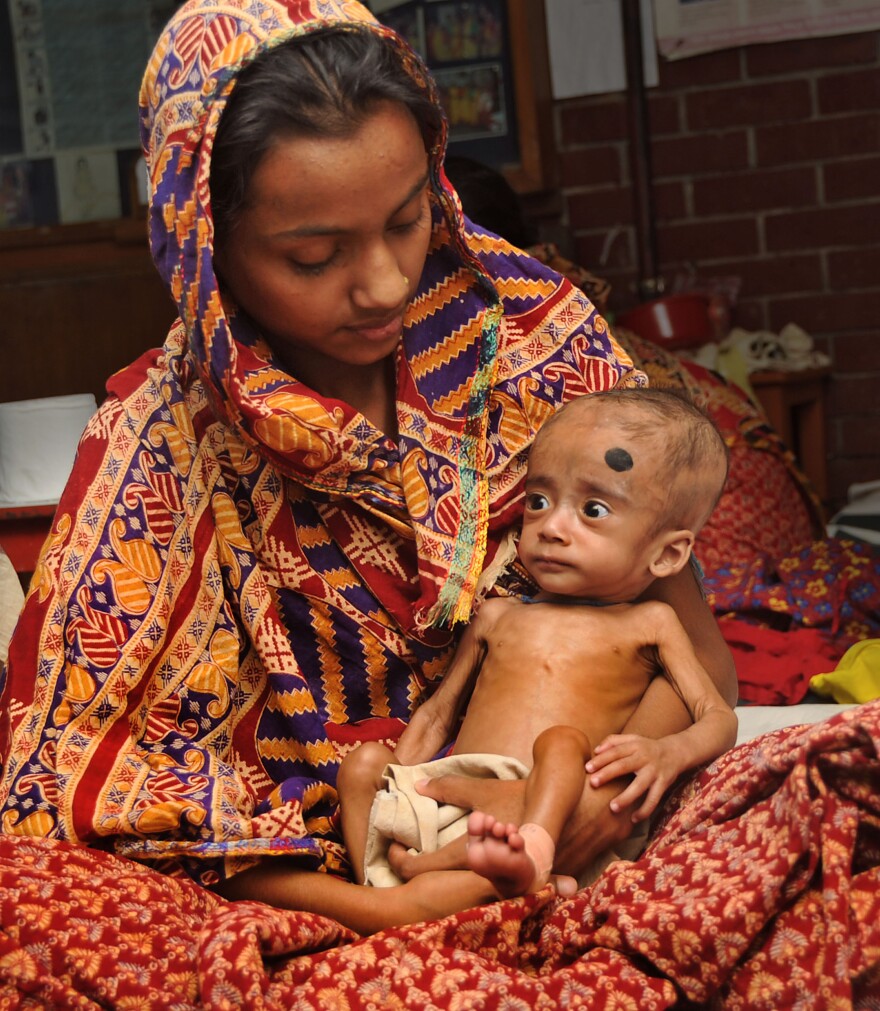New research out of Washington University could help explain why malnourished children suffer long-term health effects, even after medical treatment.
As young children develop, the community of bacteria and other microbes in their intestines develops with them. In healthy children, the community reaches maturity about the time a child turns two years old.
Washington University microbiologist Jeff Gordon calls those tens of trillions of intestinal microbes “an organ within an organ,” because of the key role they play in helping people digest food and absorb its nutrients.
Gordon was the senior author on the new study, which used genetic analysis to characterize the gut microbes of 64 severely malnourished children in Bangladesh.
Compared to healthy children, those with malnutrition had underdeveloped microbial communities in their intestines.
Gordon said the malnourished children received standard medical treatment, involving a course of antibiotics and therapeutic food to promote weight gain. “In the month or two after discharge there was a slight improvement in the state of maturity of their microbial communities,” Gordon said. But that improvement didn’t last, and the malnourished children’s gut microbes regressed to an immature state, “markedly different” from that of healthy children.
“Current food-based therapies don’t restore normal development, or a normal developmental state,” Gordon said.
He said that could help explain why treatment with therapeutic food often does not prevent the severe, long-term health problems associated with early childhood malnutrition. Those symptoms include stunted growth, a weakened immune system and mental deficiencies.
“So we’re going to have to do more,” Gordon said. “Of course, a healthy diet is critical. But if your gut microbial community isn’t mature, a healthy diet may not be sufficient.”
Previous research by Gordon’s lab linked obesity – another form of malnutrition – to less diverse gut microbial communities.
In the case of severe undernutrition, which affects about 17 million children worldwide, Gordon said his team’s research suggests new treatment approaches will be needed. He said those could involve treating children earlier or for longer periods of time ― or possibly adding probiotics to therapeutic foods.
Gordon said in the meantime, his team is going back to the lab. They’ll run experiments with mice to try to find a way to restore gut microbial communities to a healthy state, and to investigate whether an improvement in gut health early in life leads to healthy growth and development later on.
Their current study is published online in the journal Nature.
Follow Véronique LaCapra on Twitter: @KWMUScience





